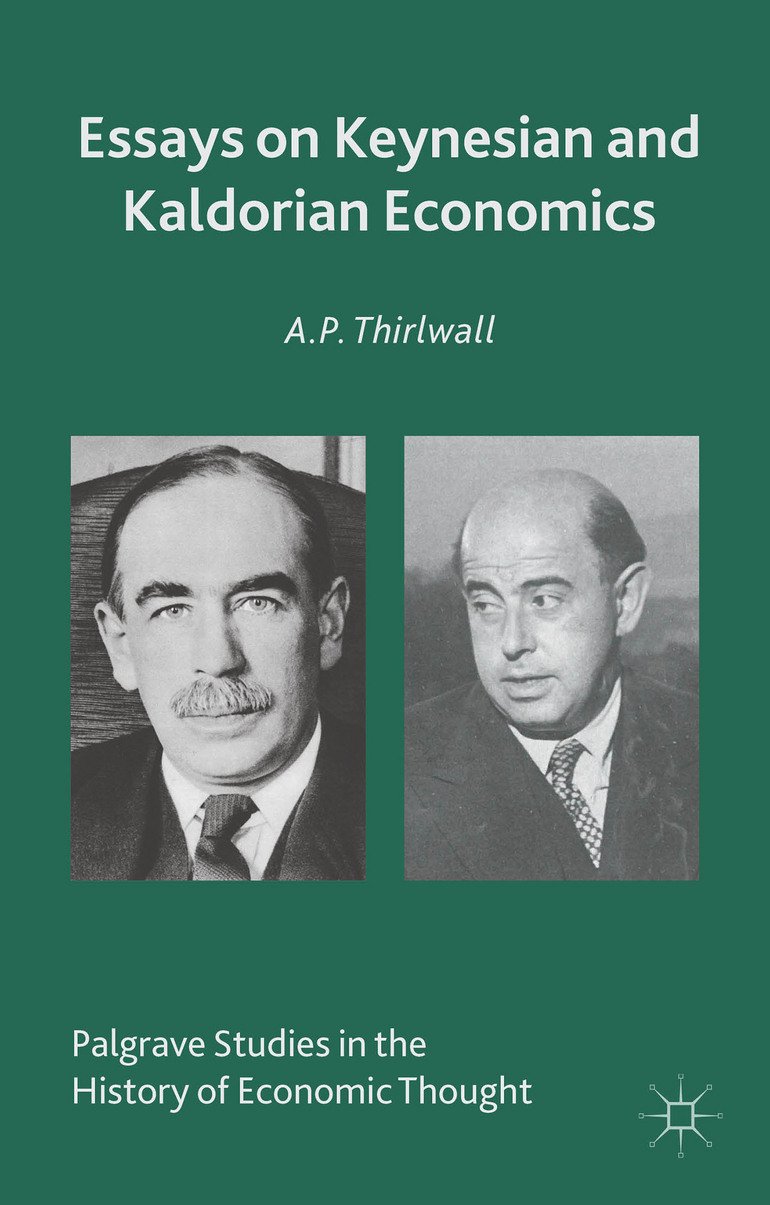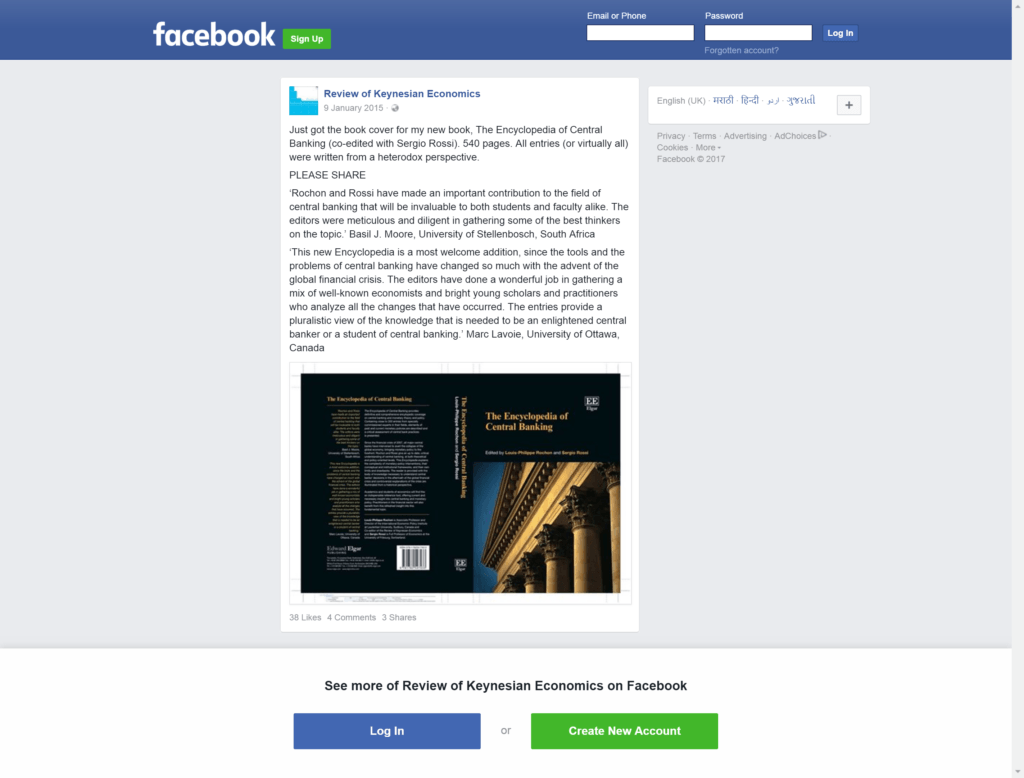During the global economic and financial crisis Keynes became popular again but Nicholas Kaldor’s ideas and the mention of the man himself didn’t take off as much. It’s unfortunate, as Kaldor played a huge role in the development of Keynesian economics itself. Kaldor’s own ideas are a subject of its own. Anthony Thirlwall is releasing a new collection of essays on Keynes and Kaldor in a book titled Essays on Keynesian and Kaldorian Economics to be published by Palgrave Macmillan.
Book website here
Description:
This volume of essays contains sixteen papers that the author has written over the last forty years on various aspects of the life and work of John Maynard Keynes and Nicholas Kaldor. The essays cover both theoretical and applied topics, and highlight the continued relevance of Keynesian and Kaldorian ideas for understanding the functioning of capitalist economies. Kaldor was one of the first economists to be converted to the Keynesian revolution in the mid-1930s, and he never lost the faith, so there was a strong affinity between them. But while Keynes revolutionised employment theory, Kaldor’s major concern in the latter part of his life was with the theory and applied economics of economic growth. The papers on Keynes mainly relate to defending Keynesian economics against his classical and monetarist critics and showing how Keynesian ideas relate to developing economies and the functioning of the world economy in general. The papers on Kaldor give a sketch of his life and role as policy advisor, and outline his vision of the growth and development process within regions; within countries, and also the world economy as a whole.
Table of Contents
Introduction
- Keynesian Economics after Fifty Years; N. Kaldor
- A ‘Second Edition’ of Keynes’ General Theory (writing as John Maynard Keynes)
- Keynesian Employment Theory is Not Defunct
- The Renaissance of Keynesian Economics
- The Relevance of Keynes Today with Particular Reference to Unemployment in Rich and Poor Countries
- Keynes, Economic Development and the Developing Countries
- Keynes and Economic Development
- A Keynesian View of the Current Financial and Economic Crisis in the World Economy (an interview with John King)
- Nicholas Kaldor: A Biography
- Kaldor as a Policy Adviser
- Kaldor’s Vision of the Growth and Development Process
- A Model of Regional Growth Rate Differences on Kaldorian Lines (with R. Dixon)
- A General Model of Growth and Development on Kaldorian Lines
- A Plain Man’s Guide to Kaldor’s Growth Laws
- Testing Kaldor’s Growth Laws across the Countries of Africa (with Heather Wells)
- Talking about Kaldor (an interview with John King)


